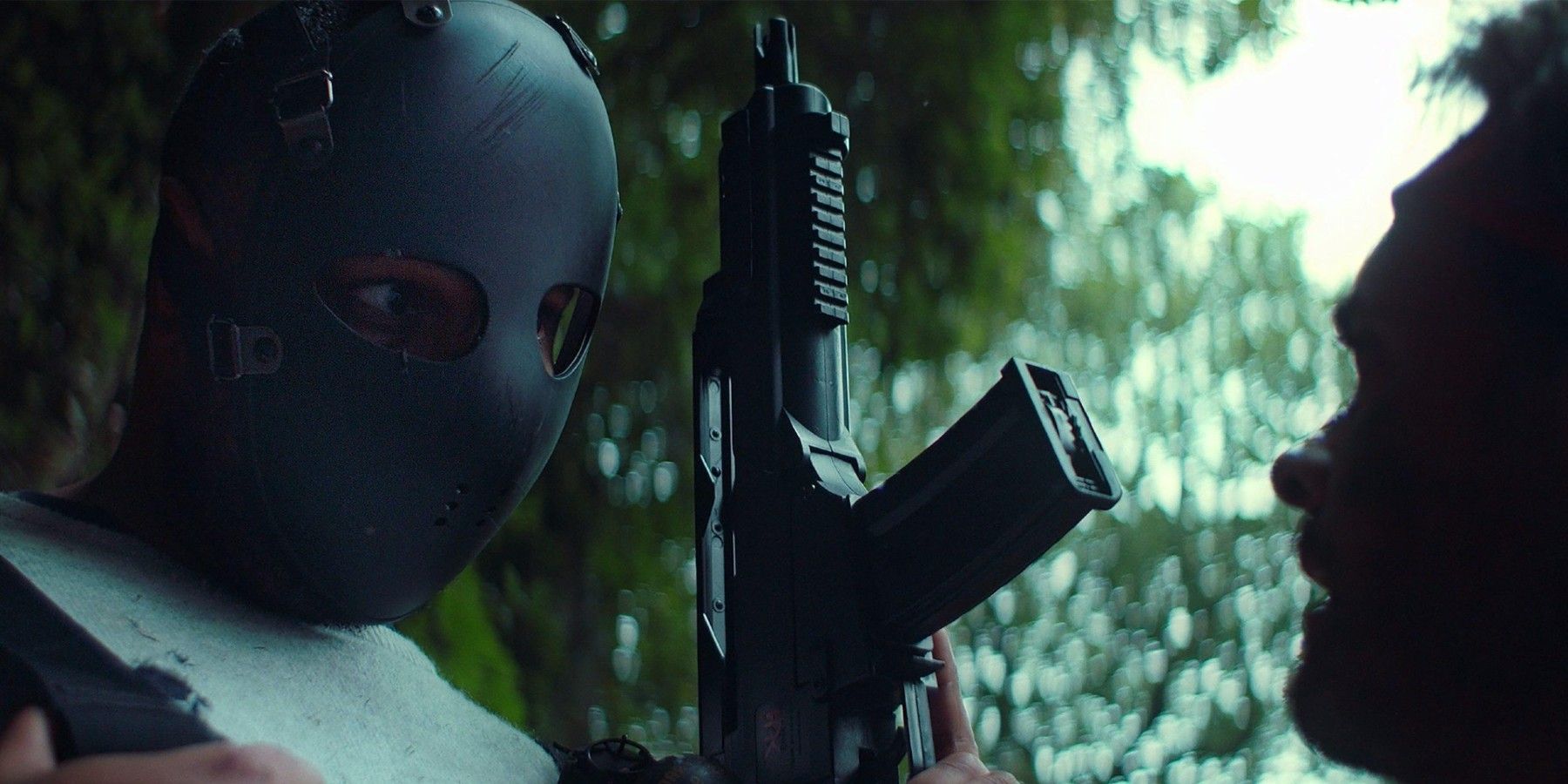FMV (full-motion video) games were once considered a charming anachronism, a brief fad that coincided with the advent of CD-ROM games in the early nineties. But developer Wales Interactive and its recent release Bloodshore is looking to change that.
The studio is renowned for its back catalogue of FMV games, including The Bunker and Don’t Knock Twice. Bloodshore is the latest in a long line of releases from the award-winning developer to fully embrace FMV, demonstrating that there may yet be a future for live action ‘interactive movie’ games, despite the genre's shaky beginnings.
A Brief History of FMV Games
FMV games were born when CD-ROM became the industry’s medium of choice in the early nineties. The hugely increased storage space available on the shiny silver disc dwarfed the paltry capabilities of its predecessor, the humble floppy disk, and as such developers were quick to beef up their games with enhanced soundtracks and pre-recorded video sequences. Indeed, virtually every game released had some sort of cinematic intro sequence, even if the game itself played out in old-fashioned sprites.
Video games had long aspired to being “interactive movies”, and now this dream could become a reality. Arcade machines like Dragon’s Lair had attempted this in the arcades using animated footage, but failed to take off due to the increased costs of production and resultant price hike for players of their machines. Now that pre-recorded sequences could be brought to home systems, there was a new opportunity to make truly cinematic games part of the mainstream.
Titles like The 7th Guest became unexpected bestsellers, with the new technology enabling developer Trilobyte to create an unprecedently atmospheric haunted house in which to torment players with fiendishly difficult puzzles. Featuring a blend of pre-rendered animations and live actors, the game became famous for its memorable villain Stauf, brilliantly portrayed by actor Robert Hirschboeck.
However, FMV games rarely attracted performers of Hirschboeck’s quality, and they became renowned for featuring cheesy acting and cringeworthy scripts. Civilization 2 included awkward pre-recorded scenes where the player’s advisors would make recommendations and squabble with each other, including an "attitude advisor" remarkably reminiscent of Elvis.
1992’s Night Trap courted controversy for its depiction of teenagers being preyed upon by home invaders, earning massive negative publicity for the entire games industry despite its incredibly tame and campy content. Even the original Resident Evil couldn’t resist getting in on the FMV act. The classic game included live action elements, which are notorious for being hilariously cheap-looking and badly acted.
However, the genre appears to be making a comeback. The popularity of interactive TV shows like Black Mirror’s “Bandersnatch” episode demonstrated that consumers still enjoy directing on-screen actors, and even The 7th Guest has been revived in the shape of The 13th Doll, a fan-made sequel featuring Hirschboeck himself reprising his original role.
Wales Interactive’s Bloodshore Showcases the Developer’s Focus on FMV
Wales Interactive was established in 2011, and is based in the town of Pencoed in Wales. The developer has published over 20 titles to date, and has won numerous awards including Appster’s Award for Best Indie Game Developer in 2014 and the Wales Technology Award in 2017 and 2018. Many of their games featuring extensive use of FMV, including recent releases like I Saw Black Clouds and Bloodshore.
One of the keys to the developer’s success is avoiding the main pitfall that plagued 90s FMV games: bad acting. The cast in Wales Interactive’s titles regularly deliver excellent performances, elevating the games above the works that served as their inspiration.
In 2016 release, The Bunker, developed by Splendy Games and published by Wales Interactive, the player is cast as a man who grew up in a fallout shelter in Britain following a nuclear war. The point-and-click title uses live action footage throughout, as the player unravels the mystery of the protagonist’s repressed memories, encounters various troubled characters, and experiences a shocking twist ending. The acting manages to sustain the serious dystopian tone throughout, never deteriorating into unintentional comedy or exaggeration.
Bloodshore also relies upon an excellent cast for its impact, depicting a brutal online competition called “KillStream” where players battle for survival, and to win a life-changing financial reward. The game’s premise bears similarities to the wildly popular TV show Squid Game, as well as to other battle royale franchises like Hunger Games and, of course, gaming behemoth Fortnite.
Reviewers have praised the acting and story of the title, as well as the quality of the visuals, with the live action sets and effects being sufficiently well crafted not to detract from the game’s immersiveness. However, some criticism has been levied at the limited nature of the game’s interactivity; although Bloodshore features a branching path narrative and nearly 300 recorded scenes, its format inherently provides less replay value than other cinematic titles.
Wales Interactive are seemingly committed to continue to use FMV to support their creative, highly original stories. They are also clearly keen to push technological boundaries, with their games released across multiple platforms as well as featuring VR support. As such, fans of full-motion video, or simply fans of well-made and intriguing games, eagerly await the developer’s next project.
Bloodshore is available now for iOS, Mac, PC, PS4, PS5, Switch, Xbox One and Xbox Series X/S.


